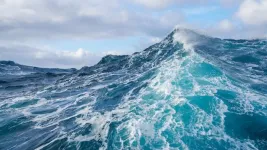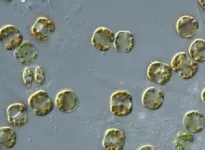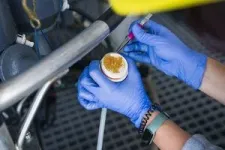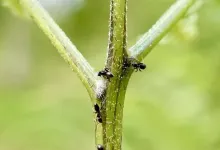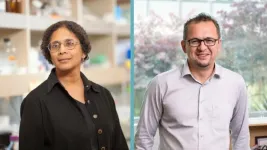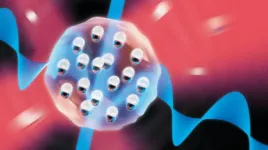Five global science and technology projects have been selected to join the Ocean Biogeochemistry Virtual Institute (OBVI) addressing gaps in ocean data and modeling efforts by improving the breadth of research in the field and expanding capacity to understand ocean resources. Schmidt Sciences, started by Eric and Wendy Schmidt, will bring together 60 scientists from 11 countries. The research will provide clarity on how much carbon dioxide the ocean can hold and the resilience of marine ecosystems in a rapidly warming world.
OBVI, through a joint call for proposals with Schmidt Ocean Institute, received 117 expressions of interest from 48 countries. Final proposals were selected through a two-stage submission process and reviewed by a panel of scientific experts and the OBVI Advisory Board. Together, the five selected teams will make up a global research network and receive financial support from Schmidt Sciences and access to Schmidt Ocean Institute’s research vessel Falkor (too). They will also receive expert shipboard assistance to tackle the challenges associated with collecting large amounts of biological, chemical, geological and physical oceanography data. Through this research, the teams will develop accurate modeling across ocean systems to address ocean processes in climate projections and mitigation.
“The ocean plays a powerful role in regulating Earth’s climate and acts as a vast repository for carbon and heat. Studies to date reveal that the ocean has absorbed and stored nearly one-third of the carbon dioxide that humans have emitted over the last century,” said Lexa Skrivanek, OBVI program lead at Schmidt Sciences. “The question of whether it can continue to do so at the same rate is one of the most critical ones we face today. Scientists have developed a broad understanding of how the ocean shapes climate, but we lack a deeper knowledge of the processes that govern carbon cycling and storage in the ocean, connections between carbon and other elemental cycles, and the roles that marine microbes and animals play in shaping those relationships.”
“Climate research is one of Schmidt Sciences' priority areas, and we are pleased to launch OBVI as part of a series of globally connected climate programs focused on advancing fundamental science to understand the implications of climate change and mitigation strategies,” said Stu Feldman, president of Schmidt Sciences. “OBVI will address fundamental questions about specific mechanisms and regional processes More broadly, it will fill a need in the ocean sciences for model refinement and integration looking across systems, scales, and habitats.”
Schmidt Sciences is partnering with the Schmidt Ocean Institute in order to maximize opportunities to support ocean observing and data collection at sea through the use of R/V Falkor (too), a state-of-the-art 110-meter global-class research vessel.
“One of the largest knowledge gaps in the global carbon cycle is the ocean component, and so this is one of the key research topics in SOI’s strategic framework,” said Jyotika Virmani, executive director of Schmidt Ocean Institute. “Alongside Schmidt Sciences, we look forward to supporting scientists on board R/V Falkor (too) over the next three years as they gather the data needed to improve our understanding of the processes controlling the carbon cycle in the Ocean.”
The following five projects and teams will form the inaugural membership of OBVI, which has committed $45M US to fund their research over the next 5 years:
Integration of models and observations across scales (InMOS) Led by: Tim DeVries (University of California, Santa Barbara) and Ralph Keeling (Scripps Institution of Oceanography)
The global ocean helps mitigate climate change by absorbing heat and carbon, but is also experiencing a triple threat from warming, deoxygenation, and acidification that may cause harm to marine ecosystems. InMOS will use AI and machine learning to build a framework for integrating both oceanic and atmospheric data across a wide range of space and time scales to improve our ability to quantify these critical processes.
Oxygen and biogeochemical dynamics along the west African margin: Processes and consequences (WAM) Led by: Sarah Fawcett (University of Cape Town)
Because fluctuations in oxygen levels offshore can have dramatic implications for coastal waters, WAM will investigate how and why oxygen levels decrease, at times to extremely low values, how those shifts affect marine life and the coastal communities that rely on fishing, and what the consequences are regionally and globally.
Ocean Margins Initiative (OMI) Led by: Amala Mahadevan (Woods Hole Oceanographic Institute), Melissa Omand (University of Rhode Island), and Edem Mahu (University of Ghana)
Ocean margins—the nexus between land and ocean —are biologically productive regions but poorly represented in climate and carbon cycle models. To improve global carbon cycle projections, OMI is building an observation and modeling system for the Gulf of Guinea, capable of capturing how coastal upwelling—the climate-regulating, marine-life-supporting movement of deep ocean water toward the surface—affects the ocean overall.
Subtropical Underwater Biogeochemistry and Subsurface Export Alliance (SUBSEA) Led by: Matthew Church (University of Montana)
Subtropical ocean gyres—large, circular currents propelled by wind and the Earth’s rotation—are some of the biggest ecosystems on Earth. Algal production in these gyres consumes significant amounts of carbon dioxide, and sinking of these algal cells moves large quantities of carbon to the deep sea. SUBSEA will examine how marine organisms in the photic zone—from sea surface to approximately 200 meters below—affect gyres’ absorption and circulation of carbon dioxide from the North Pacific to the South Atlantic.
Animals as Living Bioreactors: The role of animal gut microbiomes in shaping oceanic carbon cycling and export Led by: Anitra Ingalls (University of Washington)
Clues to how the ocean captures and releases carbon may lie in an unexpected place: ocean animal guts. The Bioreactors team will work with scientists in Madagascar and Brazil to better understand how sea creature digestive tracts work as tiny bioreactors that facilitate carbon flux in the ocean—with potential global implications.
END
